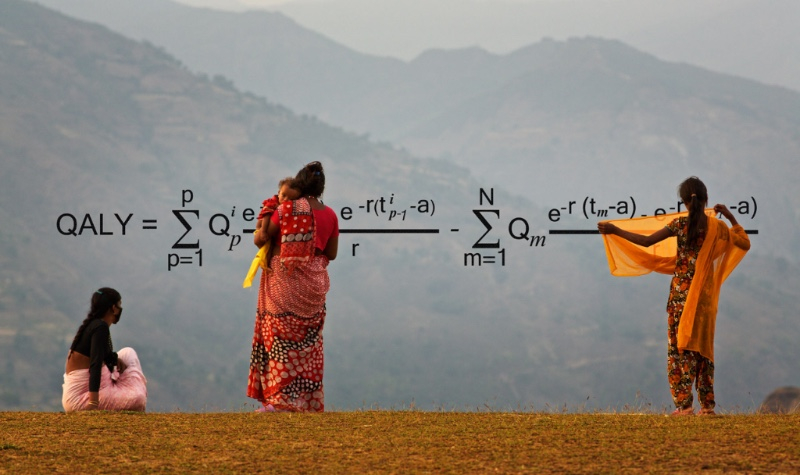Pulitzer Center Update February 9, 2016
This Week: The Life Equation

WHAT IT COSTS TO SAVE A LIFE
Health care is a scarce resource. So how should we decide who will benefit from a costly treatment—and who will be denied? In this special report for the PBS NewsHour, Pulitzer Center grantees Rob Tinworth and Miles O'Brien look at the cold calculus that could help determine the most productive ways to spend health care dollars.
Rob and Miles travel to Guatemala where they meet Crecencia Buch, a mother of seven with late-stage cervical cancer. "The price tag to treat her disease is almost $10,000," Rob told us. "And at best, it will buy only a few years of life. That money could instead fund a thousand pap smears—a cost-effective way of catching cancer before it's too late."
Computer programs can now crunch the numbers and deliver a verdict on the best way to allocate resources. As Rob notes, "It's an approach that could save millions of lives, but others question whether Big Data can truly capture the complexities of real life."
If you are a teacher, and you would like to use Miles and Rob's "Life Equation" project in your classroom, click on our Lesson Builder for a lesson plan designed by Rob and our education team. Or you can use the Lesson Builder to design your own, drawing from our growing archive of reporting on health care and many other topics. It's easy to use—and it's free. Sign up for our Education newsletter to receive weekly lesson plans that use international reporting to communicate global issues.
INSIDE A COUP
"The men were dressed in boots and dark pants, and as two of them stood guard, the rest donned Kevlar helmets and leather gloves, strapped on body armor and CamelBaks, and loaded their guns. Their plan was to storm the presidential compound, win over the military, and install their own civilian leader. They hoped to gain control of the country by New Year's Day."
In a masterful piece of reportage in the current issue of The Atlantic, Pulitzer Center grantee Stuart Reid takes readers behind the scenes of a 2014 coup attempt in The Gambia, where strongman Yahya Jammeh has ruled since taking power in a 1994 military coup.
Coups used to be fairly common in post-colonial West Africa. During one 30-year stretch, there were 35 coups among the 15 nations in the region. But since then Africa's dictators and presidents-for-life have become adept at using repression to "coup-proof" their regimes. Presidential elections are scheduled for next December in The Gambia, but Jammeh has already told his people that he is prepared to rule "for one billion years."
ANOTHER EPIDEMIC
A disturbing but not-so-surprising aftereffect of the Ebola epidemic in West Africa has been a significant spike in teen pregnancies. In some parts of Sierra Leone, the teen pregnancy rate has increased 65 percent. Health officials and aid groups attribute the surge to an increased incidence of rape.
"The surge is no coincidence," writes Pulitzer Center grantee Seema Yasmin in this dispatch for Foreign Policy. "Outbreaks of infectious diseases often leave girls and women vulnerable to violence and rape—a result of the civil unrest and instability that epidemics leave in their wake."
As one global health expert tells Seema, "Epidemics are just like a conflict situation. You have a loss of governance; you have chaos and instability; and all of that leaves women vulnerable to gender-based violence."
AN INSPIRED FAREWELL
This Thursday the Pulitzer Center hosted students, parents and teachers from the Inspired Teaching School for an exhibit of student photography. The exciting event was an "inspired" send-off for Amanda Ottaway, our educational coordinator who spearheaded the collaboration with the DC charter school. After three years with the Center, Amanda is leaving to write a book.
EXPORTING OPPRESSION
A seemingly harmless restriction on U.S. foreign aid money has effectively blocked abortion access across Kenya. Jake Naughton explores the ripple effects that policy has on women's lives. Follow along this week @pulitzercenter on Instagram as he posts from his reporting.
Until next week,
Tom Hundley
Senior Editor
